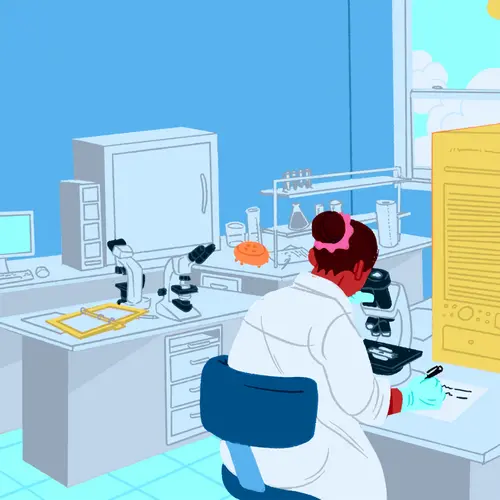Hormones help certain types of breast, prostate, and some other cancers to grow. If you have one of them, your doctor may recommend hormone therapy to slow the cancer's growth or stop it from spreading.
Hormone therapy is also called hormonal therapy, hormone treatment, or endocrine therapy. It’s usually added to other cancer treatments, and can also be used to ease cancer symptoms.
How It Works
Hormone therapy stops your body from making certain hormones or keeps them from working the way they usually do. It can also stop them from attaching to cancer cells. The most common ways to get it are:
- A pill, capsule, or liquid you swallow
- A shot in your arm, leg, hip, or belly
- In an implant
- Surgery to take out organs that make hormones, like your ovaries or testicles
You may take it at home, or get it in your doctor’s office, a hospital, or clinic.
Hormone Therapy for Breast Cancer
If you have breast cancer, your doctor might prescribe medications that stop estrogen or progesterone from attaching to cancer cells. They include:
Fulvestrant (Faslodex). For the first month, you get fulvestrant as a shot every 2 weeks. Then you get a dose every month. It treats advanced breast cancer in women who are post-menopausal.
Tamoxifen. Your usually take it every day as a pill. Doctors most often prescribe it to women who’ve been treated for early-stage breast cancer, to lower the chances of cancer coming back. In this situation, you might take it for 5-10 years. You can use tamoxifen before or after menopause.
Toremifene (Fareston). You take toremifene every day as a pill to treat metastatic breast cancer. That’s breast cancer that has spread to other parts of your body. You use it only if you’ve already gone through menopause.
If you've gone through menopause, your doctor may prescribe aromatase inhibitors. These stop your body from making estrogen. They include:
Anastrozole (Arimidex). It reduces the risk that cancer will return after you’ve been treated for early-stage breast cancer. Your doctor can also use it to treat advanced breast cancer.
Exemestane (Aromasin). You also take this to lower the risk of cancer coming back after treatment for early-stage breast cancer. You sometimes get it after taking tamoxifen for 2-3 years. Your doctor may also use it to treat advanced breast cancer if tamoxifen stops working for you.
Letrozole (Femara). This is another drug that lowers your risk of getting cancer again after you've had treatment for early-stage breast cancer. You can take it alone, or get it after you’ve finished taking tamoxifen. Doctors can also prescribe it to treat advanced breast cancer.
If you haven’t gone through menopause, your doctor may recommend one of these therapies to stop your ovaries from making hormones:
- Radiation aimed at your ovaries
- Medications like goserelin (Zoladex)
- Surgery to take out your ovaries (oophorectomy)
Hormone Therapy for Prostate Cancer
If you have prostate cancer, your doctor might prescribe luteinizing hormone-releasing hormone (LHRH) agonists and antagonists. These medications stop your body from making testosterone. You get them as a shot or implant. They include:
Anti-androgens stop testosterone from attaching to cancer cells. You take them as pills. Your doctor might prescribe them before you take an LHRH agonist or antagonist, or at the same time. They include:
If these don’t work, or your cancer comes back, the doctor may prescribe these androgen-blocking drugs:
- Abiraterone (Yonsa, Zytiga)
- Apalutamide (Erleada)
- Corticosteroids, such as prednisone
- Enzalutamide (Xtandi)
- Ketoconazole
Your doctor might also suggest surgery to take out your testicles. That’s called an orchiectomy.
Side Effects
If you’re getting hormone therapy for breast cancer, you might have:
- Hot flashes
- Vaginal discharge, dryness, or irritation
- Lower sex drive
- Tiredness
- Nausea
- Pain in your muscles and joints
- Bone loss and a higher risk for fractures
- Higher risk of other types of cancer, stroke, blood clots, cataracts, and heart disease
If you’re having hormone therapy for prostate cancer, you might have:
- Hot flashes
- Low sex drive
- Trouble getting an erection
- Bone loss and a higher risk for fractures
- Tiredness
- Weight gain
- Lower muscle mass
- Memory problems
- Higher risk of other health problems
Cost
The cost depends on the type of hormone therapy you get, how long you have it, and where you live. Most insurance companies will pay for hormone therapy for cancer.

